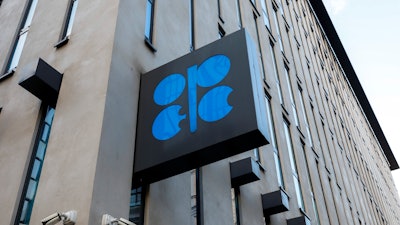
The OPEC oil cartel and its allies decided Wednesday to boost production in September by a much slower pace than in previous months at a time of high oil prices and unstable energy supplies exacerbated by the war Russia has waged on Ukraine.
The OPEC+ coalition said it will increase output to 100,000 barrels a day next month after raising it by by 648,000 barrels per day in July and August. The group considered what effects staggering inflation and rising COVID-19 rates may have on global demand for fuel in the fall, with gasoline prices at the pump still high.
OPEC, led by Saudi Arabia, and its allies, led by Russia, curtailed production during the pandemic as oil prices and demand plummeted, and those cuts are due to expire in September. The OPEC+ coalition has been gradually adding more oil and gas to the market as economies recovered.
Some OPEC nations, such as Angola and Nigeria, have been producing less than the agreed-upon amount. Saudi Arabia and United Arab Emirates, on the other hand, have the capacity to increase production, although it's unclear if they will want to.
Russia's oil and natural gas exports to the world have declined as many nations imposed sanctions or curtailed buying from the major supplier due to its invasion of Ukraine. Russia also has reduced or cut off natural gas to a dozen European countries, further driving up energy prices, squeezing people's spending power and threatening to cause a recession if nations can't stockpile enough gas to get through the winter.
It was the first official monthly meeting of the OPEC+ group since its leader, Mohammad Sanusi Barkindo, died at age 63 in his home country of Nigeria last month. Haitham al-Ghais, a veteran of the Kuwait Petroleum Corporation, took over as secretary general of OPEC this week.
It was also OPEC’s first meeting since U.S. President Joe Biden visited Saudi Arabia last month, aiming to improve relations and hoping to encourage more oil production from the cartel. There was no oil production agreement announced after the meeting, but Biden said he expected OPEC to take steps to increase production in the coming weeks.
The price of oil rose sharply after Russia invaded Ukraine in February. But it has fallen somewhat since OPEC last met.
In the U.S., a gallon of regular gasoline was selling for $4.19 on average Tuesday. That’s substantially lower than in June, when the nationwide average surpassed $5 a gallon, but it’s still painfully high for many frontline workers and families to afford and about 32% higher than what drivers were paying a year ago.






















